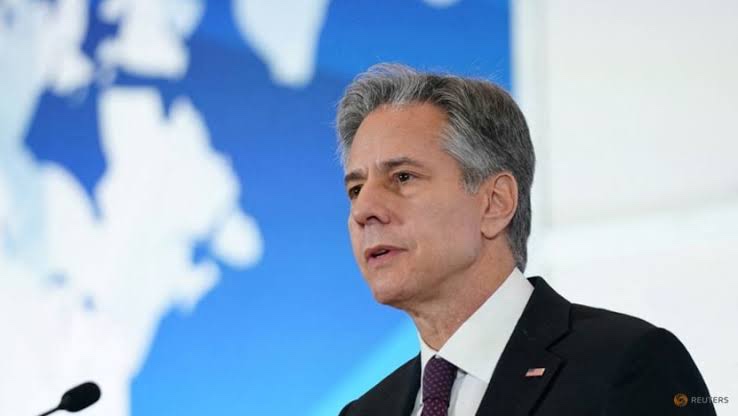US Secretary of State Blinken to visit China in effort to prevent conflict

US Secretary of State Antony Blinken has expressed his intentions to visit China and engage in diplomatic talks during a press conference on Friday.
Blinken emphasized the need for sustained diplomacy to prevent competition from escalating into conflict or confrontation, stating that such expectations were shared by the international community for both the United States and China.

Scheduled for Sunday and Monday, Blinken’s visit marks the first time a high-ranking US diplomat has traveled to China in nearly five years. The trip was rescheduled after a planned visit in February was canceled by the United States, following the detection and subsequent interception of a Chinese spy balloon.
During the press conference, Blinken outlined the primary objectives of his trip. The first goal is to establish effective and empowered channels of communication, allowing both countries to responsibly manage their relationship. Additionally, Blinken aims to clarify US interests and values while exploring potential areas of collaboration, such as global economic stability, combating drug trafficking, and addressing climate and health issues. He also intends to raise concerns about US citizens detained in China, including businessman Kai Li, accused of espionage in 2016, and pastor David Lin, who has been held since 2006.
Blinken’s remarks were delivered alongside Singapore Foreign Minister Vivian Balakrishnan, who highlighted the significance of US-China relations for the Asian region, calling it “the challenge of the century.” Balakrishnan expressed hope that the differences between the two countries could be managed effectively, as the rest of the world closely watches the outcomes of their interactions.
The visit comes at a time of strained relations between the United States and China, with contentious issues such as Taiwan, China’s global political and security aspirations, and economic ties creating tension. Recently, US officials revealed the presence of Chinese intelligence operations in Cuba, near the southeastern coast of the United States. Moreover, a prominent US cybersecurity firm, Mandiant, attributed a vast cyber espionage campaign targeting US government agencies to attackers linked to China.
Daniel Kritenbrink, the top State Department official for East Asia, acknowledged the realistic expectations surrounding Blinken’s visit, stating that no breakthrough or transformation was anticipated. Kritenbrink emphasized the importance of productive dialogue without overstating the potential outcomes.
In response to Blinken’s upcoming visit, Chinese foreign ministry spokesperson Wang Wenbin urged the United States to cooperate with China in improving bilateral relations. Wang criticized the US perception of China as its “primary rival” and “the most consequential geopolitical challenge,” considering it a significant strategic misjudgment. He argued that competition need not be a zero-sum game and cautioned against demands that could hinder China’s legitimate right to development. Wang characterized such behavior as “irresponsible bullying,” warning that it would only exacerbate confrontation and lead to a divided world.














